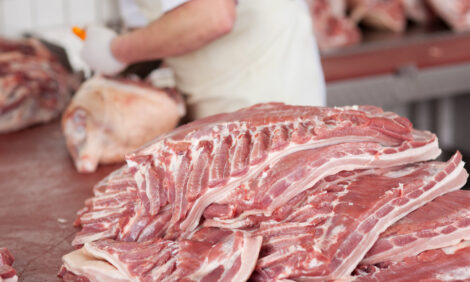



China drafts, revises laws to safeguard animal welfare
CHINA - China is pressing on with drafting and revising laws to safeguard the welfare of poultry and livestock and to ensure food security and public health as the bird flu problem has aroused the worldwide attention.
A new law on stock farming is being drafted and the existing law on animal epidemic prevention is being revised, said Assistant Minister of Commerce Huang Hai on Thursday.
But, he did not give more details about the drafting of the new law and the revision of the existing law.
"Animal welfare is closely connected with food security and public health," Huang told an international forum on animal welfare and meat product security held in Beijing.
Currently, incessant bird flu cases have triggered great concern around the world.
"The bird flu that happened in some provinces in China last week has been brought under control and no cases of human infection have been reported," said Chen Xianyi, director of the Emergency Office under China's Ministry of Health.
Some European experts asserted that bird flu was connected with the improper breeding of birds and poultry.
"The swine streptococosis endemic, a pig-borne disease, which took place in southwest China's Sichuan Province this July was found to have direct links with the foul environment for raising pigs," Huang said.
A total of 204 human infection cases were reported in the pig-borne epidemic, leaving about 40 people dead.
"To safeguard animal welfare is not only a demonstration of progress of human civilization and humanitarian spirit, but also closely linked with the health of the human beings," he said.
It is universally acknowledged that such things are basic for safeguarding animal welfare as offering a favorable living environment and breeding condition for animals, satisfying their physiological and instinct demands, and avoiding making them feel pain and fright when transporting and slaughtering them.
Animal welfare is by no means exclusive to the western countries - the idea has long been existed in traditional Chinese culture, said Donald Broom, chairman of the Council of Europe Farm Animal Protection Committee.
"No matter the idea of benevolence held by the Confucianism or the tradition of protecting living things in Buddhism, they all show the concerns about the little creatures," said Broom, also a professor at Cambridge University.
As modern animal husbandry provides rich food varieties for humans, the public is becoming increasingly fearful about food security.
Earlier, mad cow triggered more than 8 billion US dollars of trade loss in Britain. Foot-and-mouth disease occurred in Europe from 2001 to 2003 and caused the killing of nearly 1 million heads of livestock and also, billions of dollars of economic loss.
The bird flu outbreaks since 2004 have brought disaster to 16 countries and regions. According to incomplete figures, at least 384,000 birds or poultry have been infected, nearly 463,000 have died, and more than 140 million have been slaughtered. The resultant economic and social losses are complex and yet to be calculated.
"A little bit of carelessness could bring about a deadly strikeby a certain animal disease on the animal husbandry of a certain region, and the ensuing food security issues will then threaten public health," said Li Yuanping, director of the Imports and Exports Food Security Department with the State Administration of Quality Supervision, Inspection and Quarantine.
Statistics show that China reported 600 million pigs, 300 million sheep, 50 million cattle and 1.2 billion poultry in 2004, and in the global meat production, China's pork and mutton production ranked No.1 in the world; poultry meat, No.2; and beef, No. 3.
To a large country of livestock and poultry and a large country that slaughters and processes like China, it has unusual meaning to heed the issue of animal welfare, said Joyce D'silva, chief executive officer of the Compassion in World farming.
"As society progresses and becomes more civilized, animal welfare has become an important criterion for testing the level of a nation's civilization as well as an important condition for carrying out international trade," said Song Wei, director of the teaching research office of the Business School of the University of Science and Technology of China.
Source: Xinhuanet - 4th November 2005









